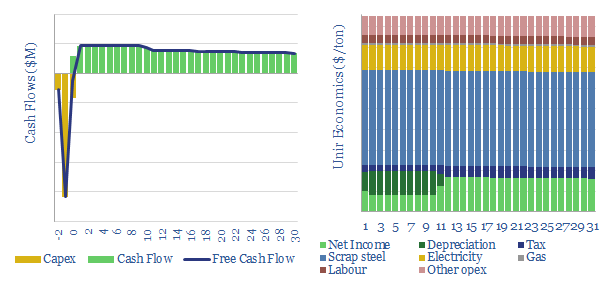Search results for: “direct air capture”
-
CO2 concentrations in industrial exhaust streams?
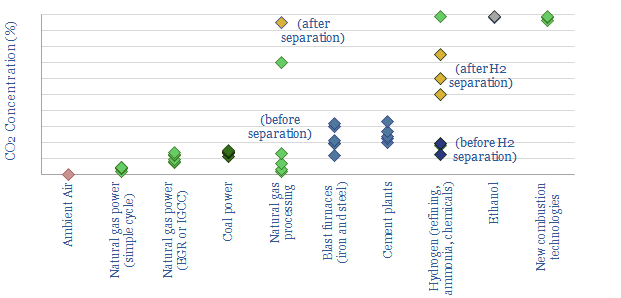
The aim of this data-file is to compile CO2 concentrations in industrial exhaust streams, as a molar percentage of flue gas. This matters for the costs of CO2 separation. Most promising CCS candidates are bio-ethanol plants, industrial hydrogen production and some gas processing, followed by cement and steel plants.
-
Turbo-charge gas turbines: the economics?
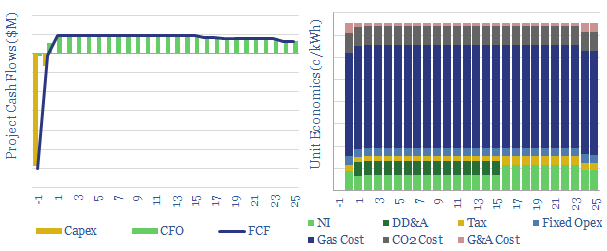
This data-file models the economics of turbo-charging gas turbines, which increases the mass flow of combustion air, to improve their power ratings by c10-20%. IRRs are solid. Turbo-charged gas turbines could thus gain greater share as grids become saturated with renewables
-
Economic costs of climate change?
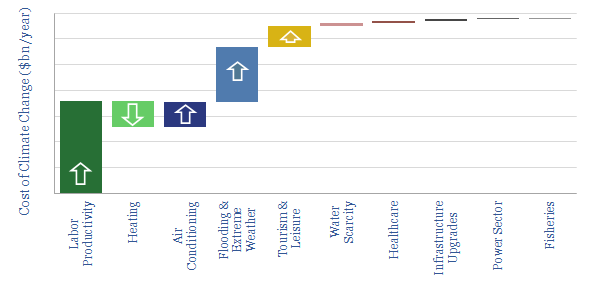
This data-file contains our estimates into the economic costs of unmitigated climate change, using the latest disclosures from the IPCC as a framework. We estimate the total costs could reach $1.5trn per annum, including productivity losses, incremental energy costs and more prevalent natural disasters.
-
Energy efficiency of household appliances?
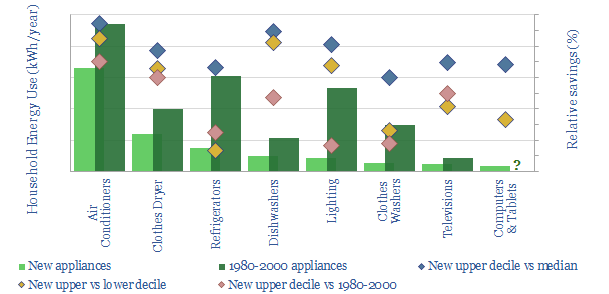
We estimate a house equipped with the best modern appliances will likely have 60% lower energy demand versus 30-years ago. 40% is from improvements over time, and 20% is from choosing the best modern appliances in each category. We present 20,000 data-points across eight categories.
-
Oil demand: the rise of autonomous vehicles?
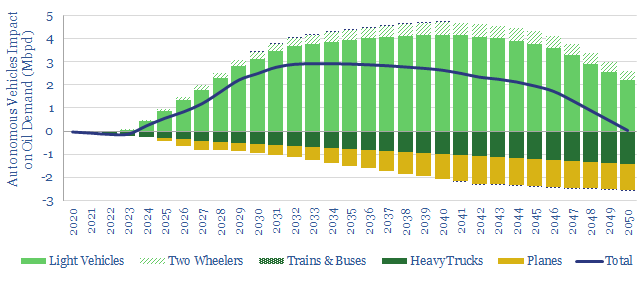
We are raising our medium-term oil demand forecasts by 2.5-3.0 Mbpd to reflect the growing reality of autonomous vehicles. AVs improve fuel economy in cars and trucks by 15-35%, and displace 1.2Mbpd of air travel. But their convenience also increases travel. This note outlines the opportunity.
-
Energy economics: an overview?
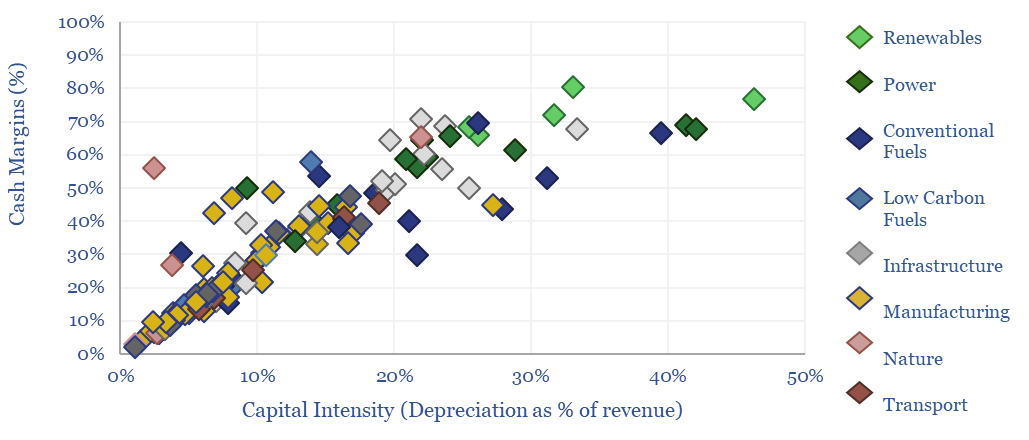
This data-file provides an overview of energy economics, across 175 different economic models constructed by Thunder Said Energy, in order to put numbers in context. This helps to compare marginal costs, capex costs, energy intensity, interest rate sensitivity, and other key parameters that matter in the energy transition.
-
Power capacity of a typical home?
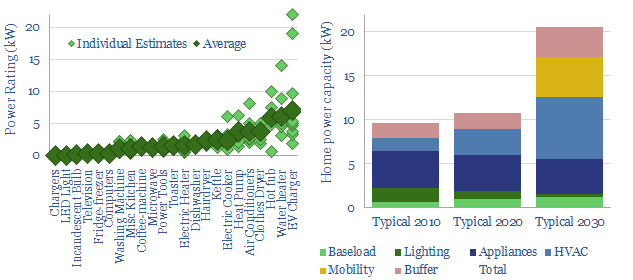
A typical home in the developed world currently has a 10kW maximum power capacity before tripping its circuit-breaker (although it varies). This could easily double in the energy transition, due to phasing back gas heating, gas cooking and the addition of home charging stations for electric vehicles.
-
Power generation: sensitivity to high-temperature heatwaves?
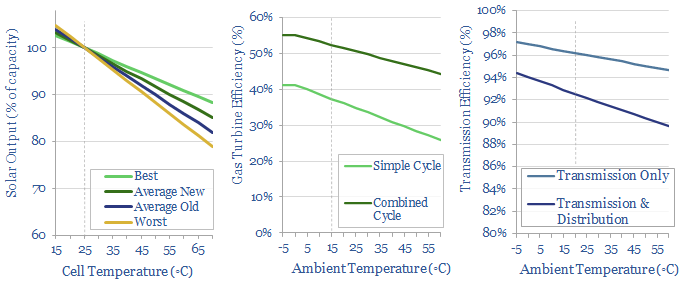
This data-file aims to provide a simple model for how generally well-covered grids can fail catastrophically during a heatwave. We have drawn on technical papers to quantify the deterioration of solar, gas, transmission and distribution losses, wind and other generation sources at higher temperatures.
-
Pressure ratings: industrial and energy processes?
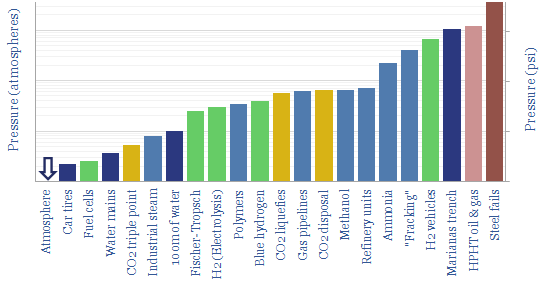
The purpose of this data-file is to chart the typical pressures of industrial processes and energy processes, as a useful reference. We are all used to 1 atmosphere of pressure, which is 1.0125 bar, 0.10125 MPa and 14.7 psi. But what pressures do industrial processes use?
Content by Category
- Batteries (89)
- Biofuels (44)
- Carbon Intensity (49)
- CCS (63)
- CO2 Removals (9)
- Coal (38)
- Company Diligence (95)
- Data Models (840)
- Decarbonization (160)
- Demand (110)
- Digital (60)
- Downstream (44)
- Economic Model (205)
- Energy Efficiency (75)
- Hydrogen (63)
- Industry Data (279)
- LNG (48)
- Materials (82)
- Metals (80)
- Midstream (43)
- Natural Gas (149)
- Nature (76)
- Nuclear (23)
- Oil (164)
- Patents (38)
- Plastics (44)
- Power Grids (130)
- Renewables (149)
- Screen (117)
- Semiconductors (32)
- Shale (51)
- Solar (68)
- Supply-Demand (45)
- Vehicles (90)
- Wind (44)
- Written Research (354)
